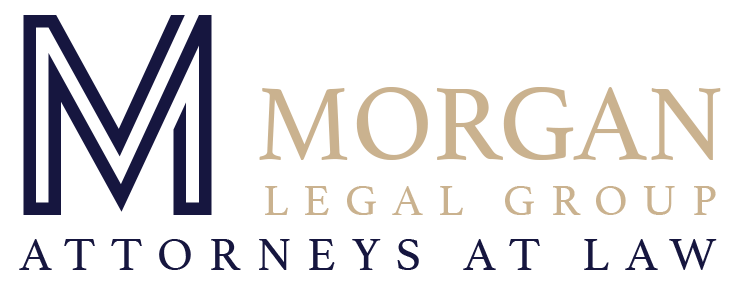Probate Legal Services at Morgan Legal Group
Expert Navigation Through the Probate Process
At Morgan Legal Group in New York City, we understand that navigating the probate process can be a complex and emotional journey. Our probate legal services are designed to ease this burden, offering expert guidance and support to executors and beneficiaries during this challenging time. Our experienced attorneys are well-versed in New York probate laws, ensuring a smooth, efficient administration of estates.
Comprehensive Probate Solutions
We offer a full range of probate services, addressing all aspects from the initial filing of the will through the final distribution of assets. Our team is adept at handling various probate matters, including contested wills, estate litigation, and estate settlement. We are committed to safeguarding the decedent’s wishes and protecting the interests of beneficiaries.
Efficient Estate Administration
Our primary goal in probate is to ensure efficient estate administration. This involves gathering and valuing estate assets, paying debts and taxes, and distributing the remaining assets to beneficiaries. Our attorneys streamline this process, reducing stress and delays for our clients.
Handling Probate Disputes and Litigation
When disputes arise, whether over the validity of a will or the management of estate assets, Morgan Legal Group is prepared to represent your interests. Our attorneys have significant experience in probate litigation, defending our clients’ rights with skill and determination.
Personalized Legal Support
Every probate case is unique, and we pride ourselves on offering personalized legal support tailored to the specific needs of each client. Whether you are an executor needing guidance or a beneficiary with concerns about the estate administration, our team is here to provide clear, compassionate, and effective legal advice.
Probate and Estate Planning Integration
Understanding the interplay between probate and estate planning is crucial. We assist clients in developing estate plans that consider the potential complexities of probate, aiming to simplify and expedite the process for future executors and beneficiaries. This forward-thinking approach is a hallmark of our service.
Schedule Your Consultation

important things you should know
Questions And Answers
Understanding Probate
Probate is the legal process through which a deceased person’s will is validated, and their estate is administered. In New York, this process involves proving the will’s validity in a Surrogate’s Court, identifying and inventorying the deceased’s property, appraising the property, paying debts and taxes, and finally, distributing the remaining property as the will (or state law, if there’s no will) directs.
Steps in the Probate Process
The probate process in New York can be complex and involves several key steps. These include filing the will and a petition for probate, notifying heirs and beneficiaries, appointing an executor or administrator, paying the estate’s debts and taxes, and distributing the remaining assets.
Strategies to Avoid Probate
There are several strategies to avoid or minimize the probate process in New York. These include establishing living trusts, designating beneficiaries on accounts (like IRAs, 401(k)s, and insurance policies), owning property jointly, and making gifts during your lifetime.
Benefits of Avoiding Probate
Avoiding probate can save time, reduce legal fees, and keep your affairs private. It also allows for immediate distribution of assets to beneficiaries, which can be particularly beneficial in situations where immediate financial support is needed.
Role of an Executor
The executor of an estate has a fiduciary duty to administer the estate in accordance with both the terms of the will and state law. This includes submitting the will to probate, notifying beneficiaries, managing the estate’s assets, paying debts and taxes, and distributing the remaining assets.
Legal Obligations and Challenges
Executors in New York face legal obligations and potential challenges such as dealing with disputed claims against the estate, managing complex assets, and handling potential conflicts among beneficiaries. Professional legal guidance is often crucial in navigating these challenges.
Intestate Succession in New York
If a person dies without a will in New York, their assets are distributed according to the state’s intestacy laws. These laws dictate a hierarchy of beneficiaries, typically starting with the closest relatives like spouses and children, and then moving to more distant relatives if necessary.
Challenges of Intestate Succession
Intestate succession can lead to unintended consequences, especially in complex family situations. Without a will, the decedent’s wishes are not considered, which may result in disputes among family members and potential legal challenges.
Small Estates and Simplified Probate Procedures
New York offers simplified probate procedures for small estates, defined as those valued at $50,000 or less. This process, known as Voluntary Administration, is quicker and less complex than regular probate, involving less paperwork and legal involvement.
Eligibility and Process for Small Estates
To qualify for the small estate process, the deceased must have resided in New York and the value of the estate must meet the specified threshold. The process involves filing a small estate affidavit and other necessary documents to transfer the assets to the rightful beneficiaries.
Why Choose Morgan Legal Group?
Morgan Legal Group stands out for its deep expertise in probate law and its commitment to client service. Our New York City-based team offers a blend of legal acumen and empathetic understanding, ensuring that our clients feel supported and informed throughout the probate process.
Contact Us for Professional Probate Assistance
If you are facing the probate of a loved one’s estate, or need advice on probate-related matters, contact Morgan Legal Group today. Our experienced attorneys are ready to assist you with professionalism and care.




